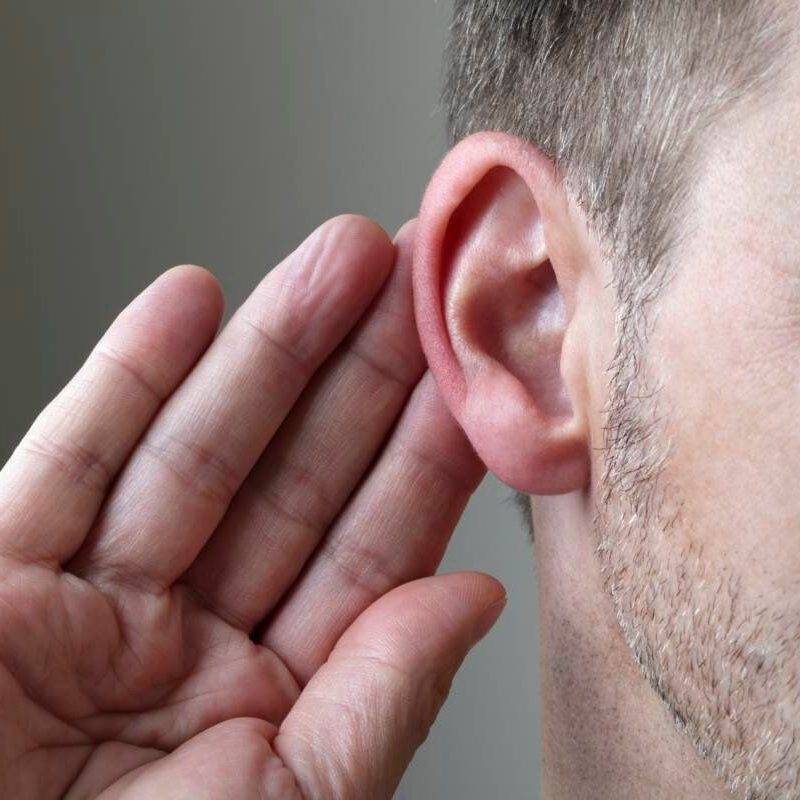Yes. Missouri workers’ compensation law benefits employees who suffer job-related hearing loss. Contact us today to schedule.
Work-related hearing loss is one of the most common occupational injuries in the U.S., particularly for workers in construction, manufacturing, transportation, and other high-noise industries. Many employees don’t realize hearing damage caused by workplace conditions qualifies for workers’ compensation benefits in Missouri.
🚨 Need help with your Missouri workers’ comp hearing loss claim? Contact the Law Office of James M. Hoffmann for a FREE consultation today.
FREE CONSULTATION

Does Missouri Workers’ Compensation Cover Hearing Loss?
Yes. Missouri workers’ compensation law benefits employees who suffer job-related hearing loss due to prolonged exposure to loud noises or sudden traumatic noise events.
The Missouri Workers’ Compensation Act covers two main types of hearing loss:
- Occupational Hearing Loss (Gradual Loss Over Time)
- Caused by long-term exposure to high noise levels in the workplace.
- Common in factories, construction sites, warehouses, and airports.
- It may take years to develop, with symptoms including difficulty hearing conversations, ringing in the ears (tinnitus), and needing higher volumes on devices (National Institute for Occupational Safety and Health (NIOSH)).
- Traumatic Hearing Loss (Sudden Injury)
- Caused by a single, loud noise event, such as an explosion, gunshot, machinery malfunction, or sudden exposure to extreme noise levels.
- It can result in immediate and permanent hearing damage (Occupational Safety and Health Administration (OSHA)).
Missouri Workers’ Comp Laws for Hearing Loss Claims
Under Missouri Revised Statutes, Chapter 287 (Workers’ Compensation Law), hearing loss qualifies as an occupational disease if it arises directly from workplace conditions.
Key Legal Criteria for a Hearing Loss Claim:
- Work-related cause: Hearing loss must be caused or aggravated by workplace conditions.
- Medical evidence required: Diagnosis from a licensed audiologist or otolaryngologist is necessary.
- Occupational exposure must be significant: Continuous exposure to noise levels exceeding 85 decibels (dB) over an 8-hour workday is considered hazardous (OSHA Noise Standard – 29 CFR 1910.95).
📌 Missouri’s 90-Day Noise Exposure Rule
If employees have been exposed to workplace noise exceeding 90 dB for at least 90 days, their hearing loss may be presumed work-related (Missouri Division of Workers’ Compensation).
How Much Compensation Can You Receive for Work-Related Hearing Loss?
Missouri’s workers’ compensation system provides specific benefits for hearing loss cases, including:
1. Medical Treatment Coverage
- Hearing tests, diagnostic evaluations, and specialist visits.
- Hearing aids and assistive devices (if deemed necessary).
- Cochlear implants or surgery (in severe cases).
2. Wage Replacement Benefits
- Temporary Total Disability (TTD): If hearing loss prevents you from working temporarily, you may receive 66 2/3% of your average weekly wage.
- Permanent Partial Disability (PPD): If your hearing loss is permanent but does not prevent you from working, compensation is based on the degree of impairment.
- Permanent Total Disability (PTD): If hearing loss makes you unable to work permanently, you may qualify for lifetime benefits.
3. Lump Sum Settlements for Permanent Hearing Loss
- Missouri assigns a value to hearing loss based on a percentage of total body disability.
- Maximum PPD benefit for total hearing loss: 49 weeks of compensation per ear (Missouri Workers’ Compensation Statute § 287.190).
📌 Example Payout Calculation:
- If an employee is found to have 50% hearing loss in one ear, they may receive half of 49 weeks’ pay.
How to File a Workers’ Comp Claim for Hearing Loss in Missouri
Step 1: Report the Hearing Loss to Your Employer
Missouri law requires injured workers to report hearing loss within 30 days of discovery (RSMo § 287.420).
- Provide written notice to your employer (email, letter, or official injury report form).
- Keep a copy of the report for your records.
Step 2: Seek Medical Evaluation
- Schedule a hearing test (audiogram) with a state-approved audiologist or ENT specialist.
- Ensure the doctor documents your work history and noise exposure levels.
Step 3: File a Workers’ Compensation Claim
If your employer refuses to file your claim, you can file it with the Missouri Division of Workers’ Compensation.
📍 How to File Your Claim:
- Download the Claim for Compensation Form
- Submit it to:
- Email: [email protected]
- Mail: Missouri Division of Workers’ Compensation, P.O. Box 58, Jefferson City, MO 65102-0058
- Phone: (573) 751-4231
What If My Hearing Loss Claim Is Denied?
Workers’ compensation insurers frequently deny hearing loss claims, arguing that:
- The hearing loss was caused by aging, not work-related noise.
- The worker failed to report symptoms in time.
- The hearing loss isn’t severe enough to qualify for benefits.
How to Fight a Denied Claim:
- Gather additional medical evidence (second opinion from a specialist).
- Obtain workplace noise level records (OSHA compliance reports, coworker testimony).
- File an appeal with the Missouri Workers’ Compensation Division.
- Consult an experienced workers’ comp attorney to maximize your chances of approval.
📌 Appeals must be filed within 20 days of a denial notice (Missouri Workers’ Compensation Appeals Process).
Industries at High Risk for Work-Related Hearing Loss
According to the Centers for Disease Control and Prevention (CDC), industries with the highest rates of occupational hearing loss include:
🔹 Manufacturing (textiles, metalworking, wood processing)
🔹 Construction (jackhammers, power tools, heavy machinery)
🔹 Mining (drilling, blasting, underground equipment)
🔹 Airport & Transportation (aircraft ground crews, truck drivers)
🚨 Fact: Nearly 22 million U.S. workers are exposed to hazardous noise annually, and hearing loss accounts for 1 in 9 occupational illnesses (National Institute for Occupational Safety and Health (NIOSH)).
Protecting Your Rights in a Hearing Loss Workers’ Comp Claim
You may be entitled to compensation if you’re experiencing work-related hearing loss—but employers and insurance companies often fight these claims.
- Don’t delay—report your symptoms ASAP.
- Get a medical evaluation from a licensed specialist.
- If your claim is denied, seek legal help to fight back.

Contact The Law Office of James M. Hoffmann Today
🚨 Need help with your Missouri workers’ comp hearing loss claim? Contact the Law Office of James M. Hoffmann for a FREE consultation today.
